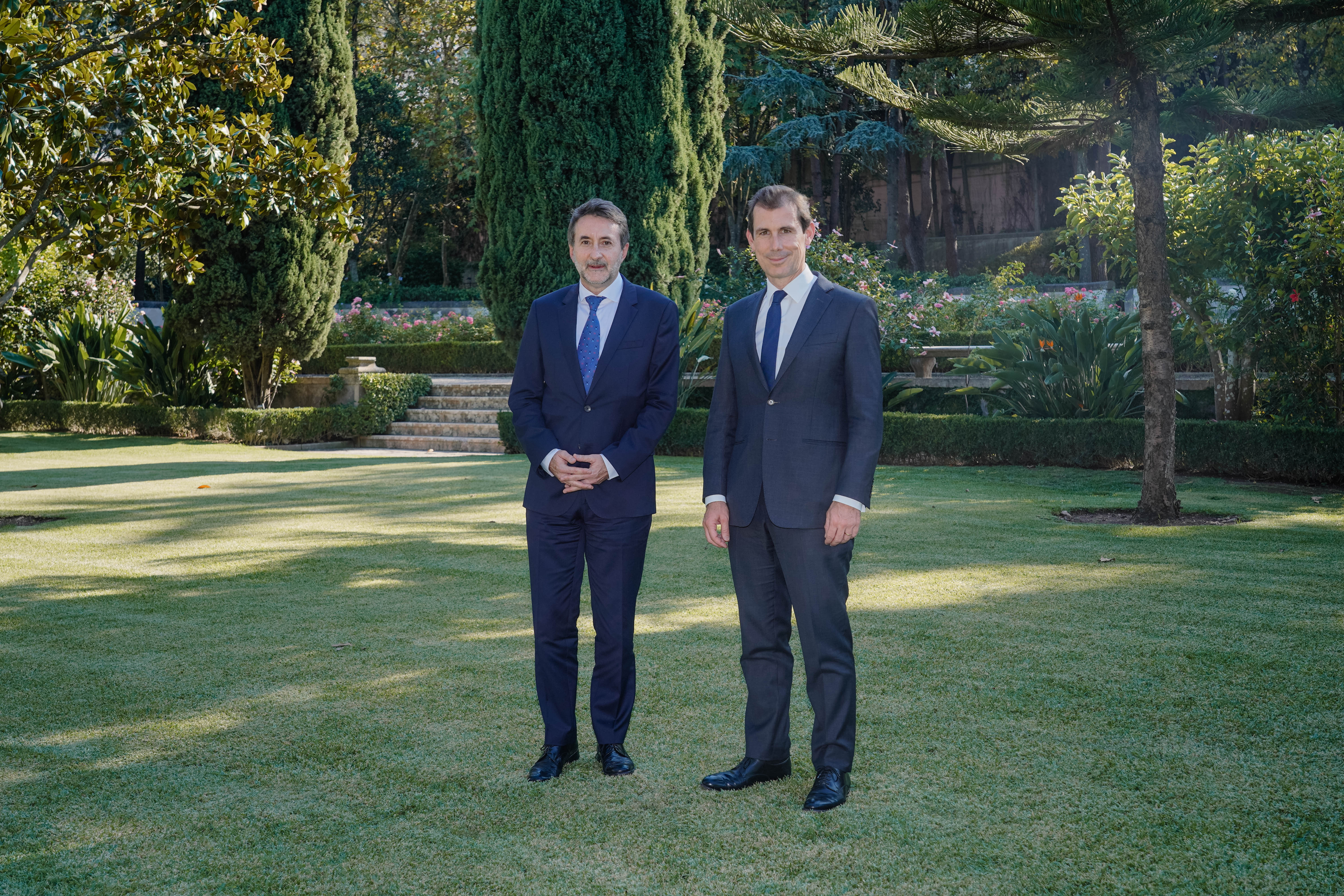
EDP and Repsol reach an agreement to start up renewable hydrogen projects in the Iberian Peninsula

This agreement focuses on the evaluation of investment opportunities of both companies in renewable hydrogen projects in Spain and Portugal
EDP, through its EDP Renewable subsidiary (Euronext: EDPR), the fourth biggest renewable energy worldwide, and Repsol, the multienergetic company, leader in the mobility and industry sector in the Iberian Peninsula, are going to work together to evaluate the new investment opportunities in renewable hydrogen projects in the Iberian Peninsula. The Memorandum of Understanding (MoU) – signed this week by managing directors of both companies, Josu Jon Imaz and Miguel Stilwel d’Andrade, in Spain’s Embassy in Lisbon – entails the beginning of discussions between both parts to implement renewable energy projects in the Iberian Peninsula.
The agreement recognizes three potential projects for their subsequent evaluation, two in Spain and one in Portugal. In the first case, two projects have been identified. One of them, lead by EDP, is the Aboño project, that intends to create a “Hydrogen Valley” in Asturias, one of the main axes in the energy transition plan designed for this province. Repsol leads the project in the Basque country, also with a large-scale electrolyzer, within the "Basque Hydrogen Corridor" project.
In Portugal, renewable hydrogen production planned to be exploited in Sines, benefiting from the complementarity among Repsol’s operation here, through its industrial complex – as potential renewable gas user – and EDP’s role as energy supplier.
With the identification of these first projects, both companies reinforce its interest in exploiting synergies for the management and operation of renewable hydrogen projects in the Iberian Peninsula, in a period of energy transition in which collaboration, not only between companies, but also between the public and private sector, will be crucial.
With the purpose of becoming a carbon neutral and 100% green company by 2030, EDP has been investing in renewable energy projects (specifically of renewable hydrogen) in various regions, contributing therefore decisively to the industry’s decarbonization and to the acceleration of the energy transition process in economy sectors in which it is particularly difficult to reduce the emissions. In order to achieve this, the collaboration with other big enterprises and industry partners is absolutely critical.
To Miguel Stilwell d’Andrade, EDP’s CEO, “this partnership represents a huge opportunity to promote decisive projects in the renewable hydrogen area in the peninsula. When joining teams, knowledge and experience of two great companies, that also share ambitious sustainability goals, I am certain that we will contribute to a quicker and more efficient energy transition.”
Repsol was the first company in its sector that committed to becoming a a net-zero emissions company by 2050 and hydrogen will be key to transform its industrial site in multienergetic centers. Repsol aims to lead the renewable hydrogen production in the Iberic Peninsula and plays a leading role in Europe with the goal of having a capacity equivalent to 552 MW in 2025 and 1.9 GW in 2030.
According to Josu Jon Imaz, Repsol’s managing director, “this agreement will gather the complementary capacities of two big companies to accelerate the decarbonization of the Spanish and Portuguese economies. Sinergies and the aim to create value in renewable hydrogen’s production and commercialization will help to develop an emergent market that still has technologic and regulatory challenges”.
EDP and Repsol have been working together for some time. Both companies are partners in the Windfloat Atlantic project, the first floating offshore wind farm in mainland Europe, located in front of the coast of Viana do Castelo. The Spanish multinational owns 13.6 % of participation in the project, lead by Ocean Winds, a joint venture created by EDP Renewables and Engie. Other wind energy production projects, like the oofshore parks of Inch Caoe or MORL, both in the UK, were also promoted by a partnership between two firms.

